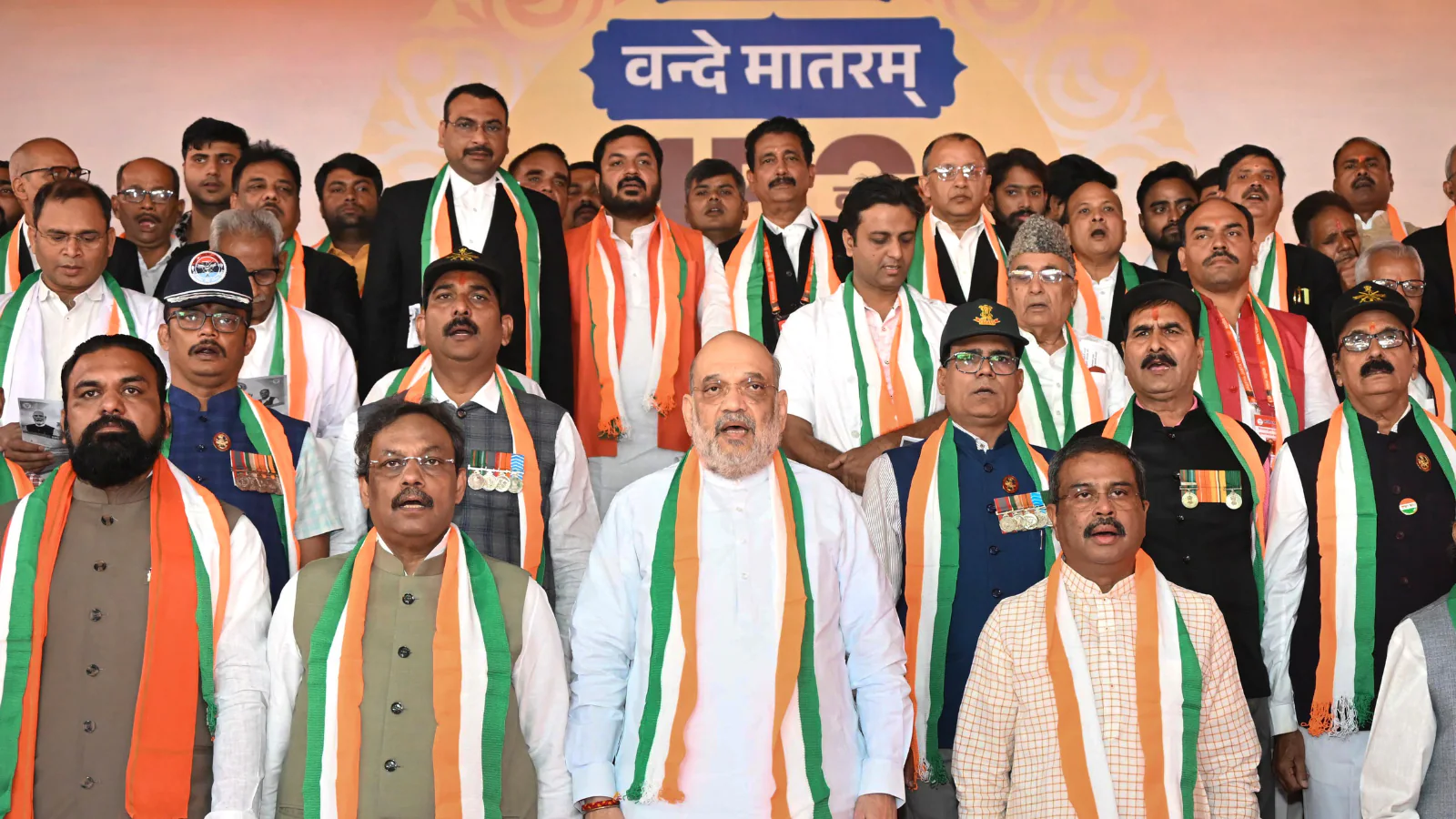Copyright news18

Home Minister Amit Shah has described Vande Mataram as “the first proclamation of cultural nationalism,” linking its 150-year legacy to Prime Minister Narendra Modi’s vision of a confident and self-reliant India. Writing in his column titled “Vande Mataram – The First Proclamation of Cultural Nationalism”, published on his official website on November 7, Shah said that the song “connects with the soul of Bharat” and continues to inspire the government’s national and cultural ethos. Opening his column with a reference to Prime Minister Modi’s remarks that Vande Mataram is “a mantra that connects 140 crore Indians” and “a surge of emotions in our hearts,” Shah said the song’s enduring power reflects the “civilisational continuity” at the heart of Modi’s Viksit Bharat 2047 vision. “Even today, Vande Mataram inspires our vision of a Viksit Bharat 2047 — a confident, self-reliant and resurgent Bharat,” he wrote. Tracing the origins of the song, Shah noted that Bankim Chandra Chattopadhyay composed Vande Mataram in 1875 on the day of Jagaddhatri Puja — not as a political slogan but as a spiritual invocation that later became a revolutionary anthem. “Among them stands Vande Mataram, Bharat’s national song. It did not emanate from a battlefield but from the calm yet resolute mind of a scholar,” he observed. According to Shah, the composition drew deeply from India’s ancient texts and spiritual traditions — from the Atharva Veda’s verse “Mata bhumih putro aham prithivyah” (“The earth is my mother, and I am her son”) to the Devi Mahatmya’s invocations of the Mother Goddess. “It reminded us that Bharat is not just a geographical territory, but a geo-cultural civilisation,” he wrote, calling it Bankim’s “first proclamation of cultural nationalism.” The Home Minister also recalled how Vande Mataram became a unifying force during the freedom struggle, sung by revolutionaries, students and common citizens alike. He cited instances such as the 1906 Barisal protest, where thousands defied colonial restrictions to sing the song, and Gandhi’s remark that it had “the magical power to stir even the dullest blood.” Across Tamil Nadu, Punjab and Bengal, Shah said, the hymn “united the nation and strengthened the consciousness of freedom.” Marking 150 years since its composition, Shah announced that the government will organise nationwide celebrations to commemorate the milestone, ensuring that “the full version of Vande Mataram will resonate across the nation, inspiring the youth to internalise the idea of cultural nationalism.” Concluding his column, Shah described the song as “the voice of India’s soul” and “the first mantra of Bharat’s awakening.” He wrote: “This sacred chant will continue to echo through eternity, reminding us to view our history, our culture, our values and our traditions through the vision of Bharatiyata.” Through the column, Shah positions Vande Mataram not merely as a historic anthem but as a bridge between India’s cultural past and its developmental future — a symbolic thread tying the spiritual imagination of Bankim Chandra to Modi’s call for a self-confident, resurgent India.



